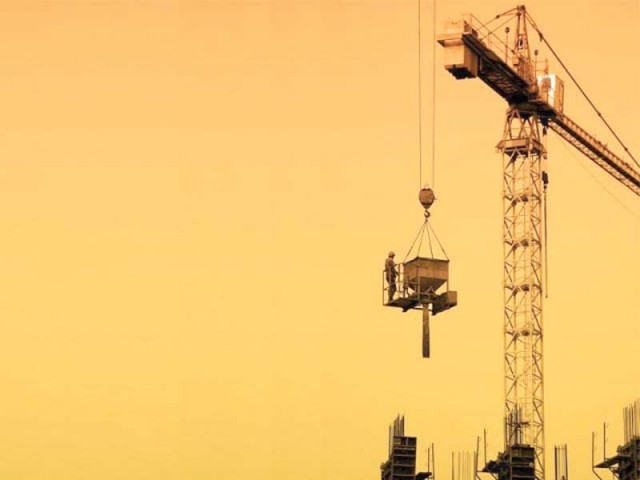Federally funded: Despite resource constraints, govt adds 366 new projects
All projects will be delayed and costs will escalate

Keeping in view the funds allocated, it will take over 12 years to complete these projects and over time the cost will escalate due to inflation, resulting in delay of five years. PHOTO: FILE
In almost two years, the government has added 366 more projects valuing Rs4.2 trillion to the federally funded programme, which will push back completion period of all projects due to limited allocation besides resulting in cost escalation.
With the inclusion of these schemes, the number of projects funded by the Public Sector Development Programme (PSDP) has increased to 1,020 with an estimated value of Rs8.2 trillion at current prices, say official reports. Some of these projects have not been approved, but were added to the PSDP document.
The government has recently removed Rs958-billion Karachi Nuclear Coastal project from the PSDP aimed at showing the expenses on the lower side. The project needs roughly Rs100 billion per annum over the next 10 years. By including this project, the cost of under-construction projects grows to roughly Rs9.2 trillion.
Read: CDA approves Rs37.7 billion budget
The projects are being approved without a cost-benefit analysis, which has eroded the intended benefits, said Planning Commission’s former deputy chairman Dr Nadeemul Haque.
In the new fiscal year, the government has allocated only Rs580 billion to carry out work on these schemes. In addition to this, Wadpa and the National Transmission and Despatch Company will spend Rs175 billion from their own resources.
Keeping in view the funds allocated, it will take over 12 years to complete these projects. However, with the passage of time, their cost will escalate due to inflation, leading to further delay of at least five years.
The budgetary allocations are not in line with the financing needs of these projects, said economist and chairman of the Institute of Policy Reforms Dr Hafiz Pasha.
He said the government should first complete the ongoing projects before adding new ones.
However, contrary to this approach, the government has added the 7,100-megawatt Bunji Dam that will cost Rs1.3 trillion instead of first completing the Diamer Bhasha Dam. In its first year, the PML-N government had added 150 schemes costing Rs2.7 trillion. In the second year, it approved another 216 projects worth Rs1.5 trillion, according to a report presented by the Ministry of Planning and Development to the National Economic Council last month.
Many of these projects were in the energy, transport and communication sectors and had to be approved. However, this has been done at the cost of existing schemes, which will now be delayed for at least five more years, suggests a study carried out by the Sustainable Development Policy Institute (SDPI).
Effects
The impact of including new projects has already started becoming visible. For instance, the government has reduced the water sector allocation from 9% of the development budget to 6% for the current fiscal year 2015-16.
Allocation for the power sector was also reduced from one-fourth to one-fifth in the new budget. However, allocation for the transport and communication sector was increased from 34% last year to 46% in the new budget, primarily because of inclusion of the China-Pakistan Economic Corridor (CPEC) projects.
Read: Rs690m allocated for new airport projects
Of the Rs4.2 trillion, Rs2.5 trillion worth of projects were in the energy sector and Rs1.05 trillion were in the transport and communication sector. In the first year, the government focused on energy projects and switched to transport and communications in the second year, thanks to the CPEC.
Pasha said the priority should only be power and water sectors as the government did not have the room to set aside roughly half of the budgetary resources for the transport and communication sectors.
The inclusion of new projects requires better monitoring to stop leakages. The government has so far been unable to meet its election promise of ensuring physical monitoring of every project funded by the PSDP, said SDPI Deputy Executive Director Dr Vaqar Ahmed.
He said there was no systematic physical monitoring mechanism and the Planning Commission was primarily relying on desk monitoring.
Citing a study done by the SDPI, Ahmed said resources were also being wasted due to the overlapping of activities, as many similar nature projects were funded under the federal as well as provincial development plans.
Published in The Express Tribune, July 21st, 2015.
Like Business on Facebook, follow @TribuneBiz on Twitter to stay informed and join in the conversation.



















COMMENTS
Comments are moderated and generally will be posted if they are on-topic and not abusive.
For more information, please see our Comments FAQ